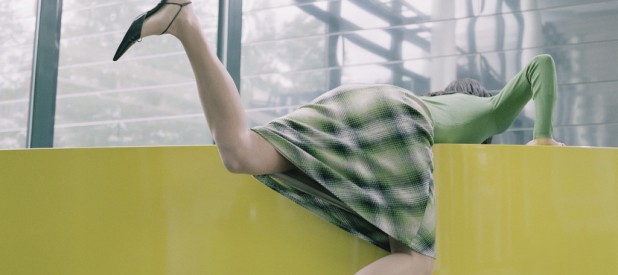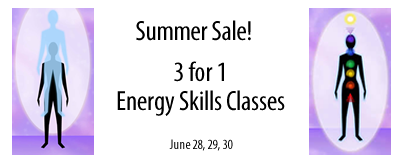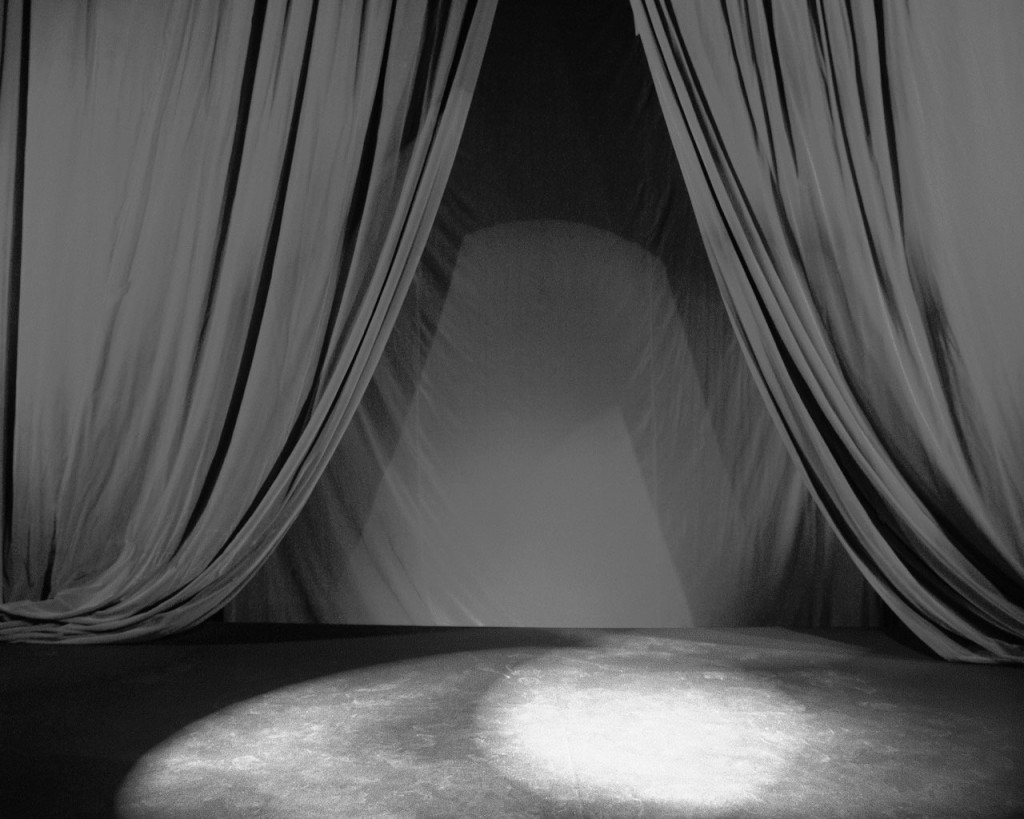For sensitive people, setting boundaries is one of the trickiest skills for us to master.
We’ve learned to have feelers out around us constantly, aware of everything and everyone, as a strategy to not be blindsided by challenging people in our lives. We’re porous, and open, and affected by other people’s energy, emotions, and even thoughts and feelings. Many of us have tendencies to be “fixers” — quickly responding to other people’s needs, wants, and problems — in part to relieve our own distress at having them being “needy” in our physical and energetic space. And we don’t miss much, because we’re constantly aware of what’s happening around us.
We also happen to be excellent at helping people process painful experiences. We can be deeply empathic and highly supportive during difficult times. We can put ourselves in other people’s shoes fairly easily (and our audience’s and characters’ shoes, if we are also creatives and writers).
Setting boundaries, for people who are so accustomed to being open, can feel like a slap in someone else’s face — to us. Typically WE don’t like having boundaries set, because it feels like being pushed away, and many of us long for deep closeness, so we don’t like to set them for other people. At the beginning of setting boundaries, it CAN come off as harsh, because we’re not innately accustomed to it, so we often err on the side of overkill. It takes practice to even it out.
And the hard reality, though, is that until we learn to set proper boundaries, we are uncomfortably and inappropriately affected by other people, and often overly involved in their “business” too.
As sensitives with other things to do in the world besides just dealing with being highly sensitive (*grin*), like writing, or creating, or pursuing your own life dreams, you’ll want to set boundaries on multiple levels, so you can stay on track with your own path, and not get pulled off course by other people’s agendas, needs, wants, visions.
1. Set physical and practical boundaries.
If you’re working or living in a shared space (or even if others have access to your physical space), you’ll find yourself being affected by other people’s energy, intentions, and assumptions, unless you clearly establish the ground rules or boundaries for what’s okay and what’s not.
Usually this looks like establishing parameters around when and how you want to work or focus in an uninterrupted way, when and how you’re willing to be interrupted (or not), when and how you want alone time, how and when people are allowed to drop by, and more.
So, for example, in my house, my family knows that writing time is sacred. With some trial and error, we’ve established that when I’m writing, no one talks to me, no one interrupts me, no one asks me questions, and no one comes into the room (though as I type that I’m pretty sure my 5 year old son sneaked into my writing room yesterday to get something but since he didn’t bother me, I didn’t mind).
I do make an effort to keep my other work time corralled to daytime hours when my son and husband are away from the house (I work in a home office) but if they ARE home, we have rules there too. I close my doors and lock them. I come out at expected intervals — I let them know when I’ll be taking a break and when they can ask me questions. OF COURSE if there was an emergency they would interrupt me and I would be totally fine with that. But otherwise? No.
And yeah, it’s sometimes hard with a 5-year-old, but he’s learning. I also don’t expect him to stay away without help. If there’s not someone else home, I do my best not to schedule things during that time.
Similarly, on a practical level, I know when I’ll answer the phone and when I won’t. When I’ll check my email and when I won’t. Et cetera.
A lot of this has to do with communication, and a willingness to keep fine-tuning it over time. And yeah, it sometimes goes off the rails. But the point is to get it back on track as smoothly and seamlessly as possible.
2. Set mental and emotional boundaries.
But what happens when you find people invading your mental and emotional space? What happens when you can’t stop thinking about what your boss said, or your friend Tammy’s “emergency”?
I find this issue shows up in two primary ways: being overly involved with other people’s needs and being overly involved with other people’s opinions.
Other people’s needs
When it comes to other people’s needs, we have to remember not to allow ourselves to get “hooked” by other people, and to respond to them appropriately, in our own right time and space.
Part of this is learning to trust and respect that at the end of the day, other adults are responsible for their own needs, just like we are responsible for our own needs. We can lovingly and supportively say, “Yes, I’d be happy to help you. I’ll be available at X time to do that.”
We can also say, “No, I’m sorry, I wish I could help you, but I’m not available.”
And by the way, in case you’re wondering, it’s totally okay to not answer the phone or respond to messages or emails until it works for you. Sure, some things need a timely reply. But that doesn’t have to mean instantaneously.
Children of course are a different matter, because as adults we are responsible for meeting many of their needs. And we are also responsible for helping them learn to take care of themselves and respect other people’s needs and boundaries too.
I’m not going to pretend that I never get hooked by other people’s dramas. I sure do. But I do my best to disentangle myself as quickly as I possibly can.
I will also add here that family is always the trickiest when it comes to setting boundaries. Always. We have such deep-seated patterns when it comes to our family members, and it’s not easy to have distance and perspective on them, which by the way, is part of what boundary-setting both requires and creates.
Other people’s opinions
Another way issues show up with mental and emotional boundaries is when we are overly invested in other people’s opinions, wisdom, and advice. This is a tough one for me. It’s far too easy for me to turn to other people for input and not remember to turn inward to my own inner guidance for the answers I need.
Why on earth would we do this?
There’s actually a good reason.
Most sensitive people, from an early age, are told NOT to be the way we are. We learned to distrust ourselves, because even though we usually saw the truth of what was going on around us, when we spoke up about it, we were told not to. Not to say it, and not to even notice it. And since we were kids when that happened, and we equated our own survival and being loved with disowning a core part of ourselves, we learn to try not to be who we are.
So that incredibly valuable, deeply wise part of ourselves gets repressed, in order for us to survive.
The work here is about learning to look within for answers and developing our intuitive muscles to hone our sense of inner guidance.
At the same time, we will also want to consult with experts and authorities from time to time, but we absolutely have to remember that on the human level we are still equals. Even if the other person has more advanced information than we do, we can set a mental boundary that says, “And what do I think? What feels right to me?” Being self-referencing in that way and remembering not to give our power away to other people is extremely empowering for sensitive people.
And yeah, sometimes someone will say something that just nags at you and it’ll take a little while to process and release it. That’s okay, just don’t let it derail you. Use your energetic tools (see below) to disconnect and move on as efficiently as you can.
3. Set energetic boundaries.
At a third level, sensitives also benefit from learning to set energetic boundaries. Sometimes that’s the easiest place to start, because when we can shift other people’s energy away from us, we’re less affected by the actual “on the ground” things that are happening.
Energy skills are a way of working with the energy field around your body to clear out the crud you pick up from other people (ever feel like “PigPen” walking around out there in the world?) and filter what comes into your space. It’s a practice that centers around some simple visualization skills to get you into your body and shielded. Again, once you put those into place, you’ll find that the other inter-personal work gets a lot easier to accomplish because you won’t get hooked as easily other people.
One of my favorites is a trick I call the “Grocery Store Cure” (described in my Protection & Boundaries self-study class) to block the energy of the people standing overly close in line at the grocery store. It’s a subtle thing, but it makes a lovely difference in creating a sense of space and place for myself.
Where’s your focus area?
The bottom line is that boundary setting isn’t a skill that comes naturally to most sensitive types, and it takes deliberate attention and communication around what’s working and what’s not working so you can make some adjustments. It’s worth it in the long run because you’ll feel better and be more on track with your own life.
So take a quick inventory of these key areas: physical and practical, mental and emotional, and energetic, to see where you might need to focus your own fine-tuning. Let me know what you discover in the comments.
Warmly,













